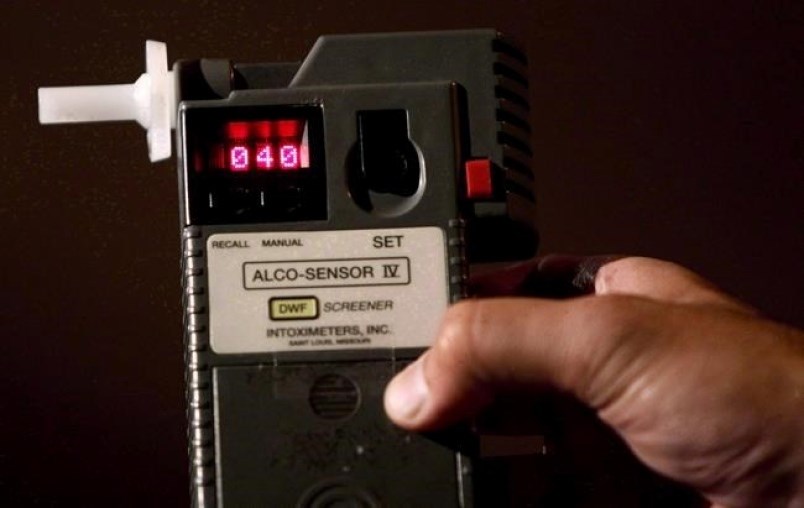Rudolph may have gotten a pass on his red nose over the Christmas season. But anyone else – particularly those whose holiday cheer comes in a bottle – should be aware that Canada’s new drunk driving laws are now in effect, say local police.
One of the biggest changes to the laws is that police can now ask any driver they stop for a breath sample, without having specific reasons to suspect that person may be impaired.
The upshot is, “You’re going to see more breath demands being made,” said Sgt. Bryan Fedirchuk of the North Vancouver RCMP’s traffic section.
For instance, police running a roadblock could decide to randomly check every fifth driver, or every 10th driver, said Fedirchuk.
Previously, police were required to have “reasonable and probable” grounds for believing the driver may be impaired, he said.
That will likely result in more drunk drivers being caught and taken off the road, he said.
“It’s an additional tool for officers at the roadside,” said Const. Jeff Palmer of the West Vancouver Police Department.
For instance, officers patrolling at certain times of night when drunk drivers tend to be on the road will have greater leeway in asking for breath samples, he said.
Fedirchuk said there are drunk drivers who at first glance don’t show any outward signs of impairment, but who end up blowing far above the legal limit of .08.
Refusing to blow into a breathalyzer will still result in a charge similar to that for impaired driving.
Using tricks to try to thwart the screening device – sticking your tongue on the end of the tube or blowing out the side of your mouth, for instance – will also result in a refusal charge, said Fedirchuk. “I’ve seen people suck in instead of blowing out,” he said.
One man who didn’t verbally refuse but turned his head away from the device was also dinged for refusal to blow.
Depending on the circumstances, most people who blow either a “warn” or a “fail” will be dealt with under B.C.’s administrative driving regime for impaired drivers, meaning a fine and a car impound ranging from 24 hours to 90 days. Those with previous roadside suspensions or who are involved in accidents may still find themselves facing criminal charges.
The new impaired driving laws also set limits for measurable levels of THC from cannabis at 2 nanograms – although police will still be required to have “reasonable and probable” grounds for suspecting impairment before asking drivers to submit to tests.
Critics have pointed out that it’s unclear to most people how much cannabis would put them over that limit or how much time would have to elapse for the newly legalized drug to clear their system.
Currently neither North Vancouver RCMP nor West Vancouver police have the devices that measure THC levels.
For now, police will rely on roadside sobriety tests designed to detect impairment. In some cases, further assessments can be done by police drug recognition experts at the detachment.
Fedirchuk also reminded drivers it’s still illegal to smoke or vape marijuana – or have the product outside of its package – in a vehicle, whether you are a driver or a passenger. Fines range from $230 to $575 per offence. “It can get really expensive” for those who disregard the rules, he said.
Fedirchuk added people can be impaired by many other drugs besides marijuana – including legal prescription drugs ranging from painkillers to anti-anxiety medication to methadone.
“Nobody reads the label that says don’t operate machinery,” he said. “Don’t drive.”



